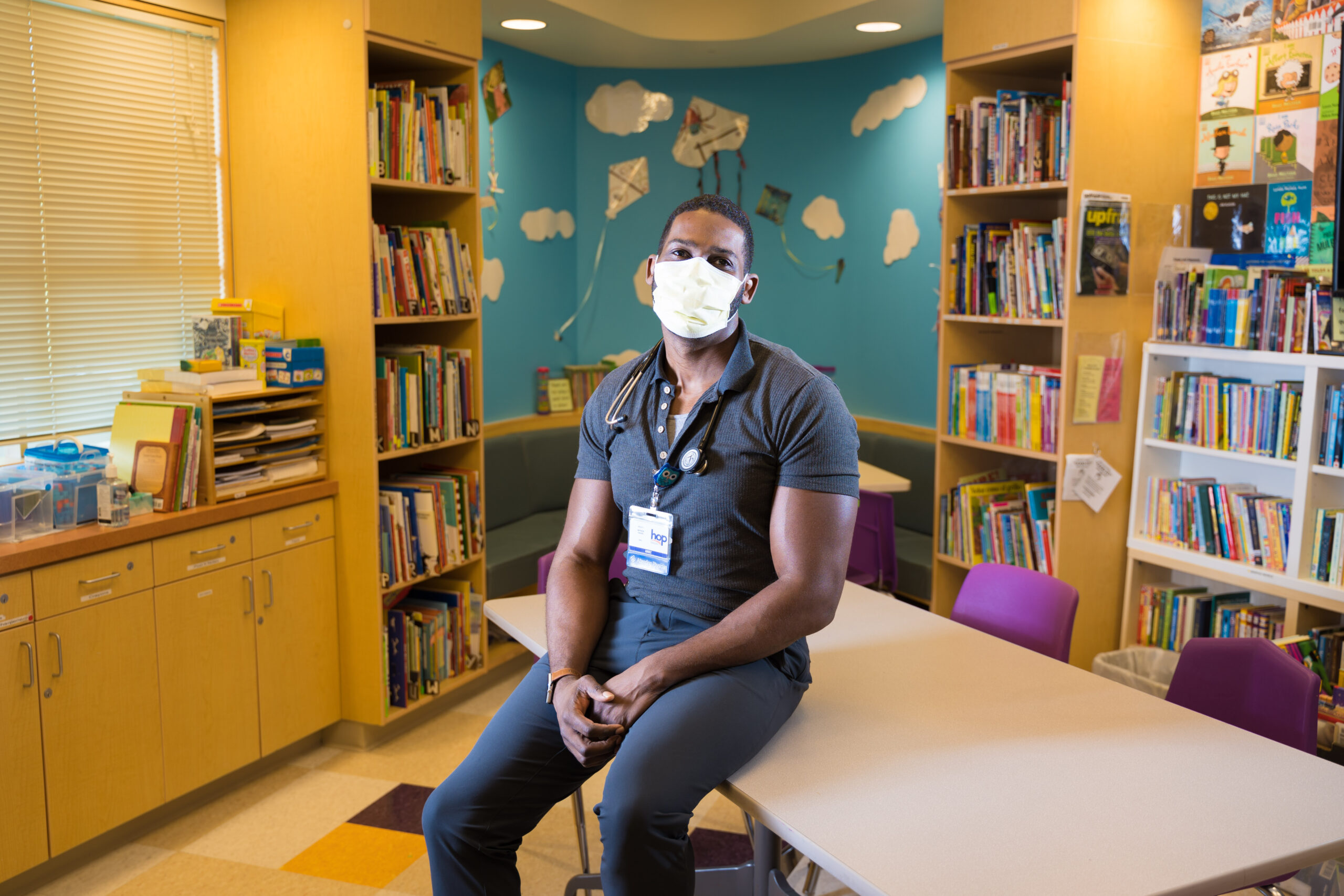Antwon Chavis, M.D. is a pediatrician at OHSU Doernbecher Children’s Hospital and assistant professor of pediatrics in the Division of General Pediatrics, OHSU School of Medicine. Recently, we sat down with Dr. Chavis to discuss what he enjoys about being a pediatrician, developing diversity and why he chose OHSU Doernbecher.
What made you decide to become a doctor—and why pediatrics?
When I was a kid, I spent a lot of time in a helping role: My older brother is autistic. I helped my parents and made sure that he was safe and had his needs met. And in my special brotherly bond that I had with him, I got really good at being a caregiver.
Of course, he had his own doctors. So as a child, I thought all doctors helped kids. As I got older, I learned there are many kinds of doctors, but I still wanted to work with children.
A lot of kids with special needs siblings go into a helping profession, whether they’re teachers, doctors or anything helping-related. I got such good skills from being a younger brother to an autistic sibling that pediatrics was an awesome way to use those talents.
What do you love about being a pediatrician?
I love working with families. I love how each family interaction is different. You have the family with first-time parents experiencing anxiety, and you’re helping to teach them skills. Then on the flipside, you have the adolescent who’s trying to take charge of their own health. You get to teach them skills that will affect them as they get older and become adults. I feel like it’s the most impactful job I could have chosen for myself.
Also: Parents trust you so much. You become part of their family. They bring you their beloved child in their most vulnerable state and ask for help. It’s a responsibility that I cherish and I really respect and appreciate to be trusted like that by people who genuinely want my advice. It’s an honor.
Can you share an example of a memorable experience?
One time when I was working on the inpatient setting in the hospital, I had a patient who was a little girl with a medically complex condition. She was very nervous. I tried to make her as comfortable as possible. She loved dolls and had a row full of different Barbies.
The last day, the hospital had a wagon that came through and she got to pick a doll. I noticed in her doll collection that she had one black male Barbie. It very clearly stood out. Her parents told me she’d wanted a doll that looked like her doctor. That made my whole day.
I know she probably hasn’t had a lot of doctors who look like me, and that she wanted to incorporate my character into her play. This was a girl who may not have realized that tall, Black men can be doctors. Now she has one in her arsenal of toys; it was very humbling.
What are some of the most pressing issues facing health care right now with regard to diversity, equity and inclusion from your perspective as a pediatrician?
Medically speaking, there are a lot of issues in terms of disparities in care and outcome. For example, the infant mortality rate in Black babies is twice as high as it is for white babies in the state of Oregon, let alone the United States. Black moms are more likely to die from childbirth. I think more work needs to be done to create equilibrium there.
I enjoy teaching families and colleagues about diversity, and showing kids how to embrace their own race and others’ racial differences. In general, I think that the biggest thing affecting diversity here is that there’s not a lot of it. It has a bigger effect than people think. It affects the classrooms; there’s not a lot of Black teachers, not a lot of Black therapists or Black doctors. I think that has a bigger effect than people realize.
What is one thing that has surprised you during your career?
I think I’ve been surprised by how accepted I’ve been at work. My route here has been atypical. I don’t have doctors in my family. I didn’t live a privileged life. I am not inherently a genius, and I didn’t go into medicine to express my genius. I was just a hardworking kid who wanted to help people.
That’s why I think that OHSU providers, especially the students, are working to redefine what it means to practice health care, make it more accessible and improve health outcomes. I believe it’s diverse experiences that create that future.

